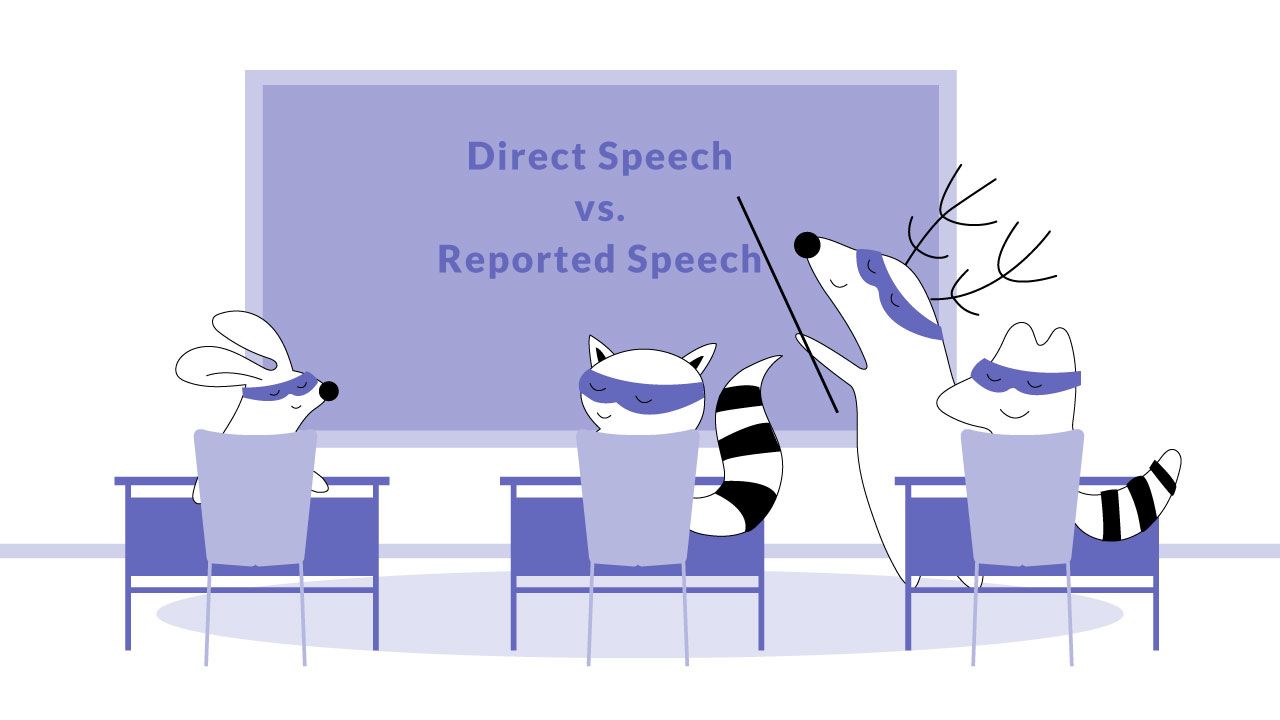
English grammar can be tricky, and there are many rules that are often forgotten. However, by familiarizing yourself with the most important grammar rules, you'll be able to speak and write English with more accuracy and confidence.
Essentially, the most important English grammar rules are basic grammar rules, so there is a great chance that you already know many of them. However, it is always good to be reminded of the basics!
For starters, you can revisit our blog post dedicated to the most common grammar mistakes in English, and ensure that you’re not committing any. Then, move on to more nuanced aspects of English grammar like reported speech or passive voice.
In this article, we will explore the most important English grammar rules to remember. Below, you will find explanations and examples for each rule. Let’s dive in!
Learn English with Langster
Basic English Grammar Rules to Follow
Below are a few simple yet fundamental rules English grammar is based upon. You need to learn and stick to them at all times.
Basic Word Order
One of the most fundamental aspects of English grammar is word order. This rule determines the position of words in a sentence.
In English, the standard word order is Subject + Verb + Object.
This means that the subject (what the sentence is about) always comes before the verb (an action or a state) and the object (what or who the subject is acting upon).
Here are a few examples of sentences following the Subject + Verb + Object pattern:
- I read books.
- Emily likes cats.
- She does the dishes.
- We are students.
As you can see from one of the examples, the proper noun (one that starts with a capital letter) Emily is the subject, followed by the verb likes and a direct object cats.
Basic Sentence Structure
In the English language, every complete sentence must have a subject and a predicate. The subject is the noun or pronoun that’s doing the verb, and the predicate is the verb (an action or a state) itself.
For example:
- I am hungry. (subject: I; predicate: am hungry)
- He likes cats. (subject: He; predicate: likes cats)
As you can see from the examples above, the subject always comes before the predicate. However, there are a few exceptions to this rule.
Questions – interrogative sentences – often have an inverted word order: Verb + Subject. And, they end with a question mark.
Like here:
- Are you late? (verb: are; subject: you)
- Do they eat sushi? (verb: do; subject: they)
The other exception to the standard subject + predicate order is imperative sentences. An imperative sentence is a command or a request. It usually omits the subject and ends with an exclamation mark.
For example:
- Do your homework! (subject: you; omitted)
- Let’s go for a walk. (subject: we; omitted - contracted from “let us”)
As you can see from the examples above, even though the subject is omitted, it’s still understood. In the first sentence, the subject is you, and in the second sentence, the subject is we.
If you want to learn how to insert two ideas in one sentence in written English, check out our post about complex sentence construction and learn how to connect two independent clauses.

Subject-Verb Agreement
The subject-verb agreement rule states that the verb in a sentence must agree with the subject in number – singular or plural.
In other words, if the subject is singular, the verb must be singular too, and if the subject is plural, the verb must be plural as well.
For example:
- My friend eats late. (singular)
- My friends eat sushi. (plural)
As you can see, for a singular subject in the first sentence (friend), the verb must be singular too (eats). In the second sentence, the plural subject (friends) requires the plural verb (eat).
It’s important to note that this rule applies not only to regular verbs but also to irregular and auxiliary verbs like be, do, and have.
For example:
- I am late. (singular)
- We are late. (plural)
Here, even though the main verb in these sentences is the irregular verb be, it must still agree with the subject in number.
Possessive Nouns
Another important rule to remember is the possessive noun rule. We possessive nouns to show ownership or a relationship between two people or things.
In English, we create possessive nouns by adding an apostrophe + s ('s) to a singular noun and just an apostrophe (') to a plural noun.
For example:
- The boy's ball. (singular)
- The boys' ball. (plural)
As you can see, to form the possessive of a singular noun, we need to add an apostrophe + s (boy’s). To form the possessive of a plural noun, we only need to add an apostrophe after the s (boys’).
Not that this rule also applies to singular nouns that end in s. In this case, we still need to add both an apostrophe + s. Like this:
- James’s book.
However, this is not always the case. Words ending with an -s are also commonly written with just an apostrophe after them, with the second s omitted.
Now that you know the basics of English grammar rules, let’s move on to some more specific and nuanced grammar rules.

Active Voice vs. Passive Voice
One of the most important grammar rules to remember is the difference between active voice and passive voice.
In active voice, the subject is doing the verb. For example:
- Someone broke the window.
- My tutor is helping me.
In passive voice, the subject is being acted upon by the verb. For example, in the sentence, “The lamp was knocked over by a gust of wind,” the subject (the lamp) is being acted upon by the verb (knocked over).
To form a sentence in passive voice, we use the helping verb be + past participle.
For example:
- The window was broken.
- I am being helped by a tutor.
Here are some more examples:
| Active voice | Passive voice |
|---|---|
| Someone stole my bike. | My bike was stolen. |
| The cashier counted the money. | The money was counted by the cashier. |
| They will build a new school. | A new school will be built. |
| Active voice | Passive voice |
|---|---|
| Someone stole my bike. | My bike was stolen. |
| The cashier counted the money. | The money was counted by the cashier. |
| They will build a new school. | A new school will be built. |

As you can see, passive voice is often used when we don’t know who did the action or when it doesn’t matter who did it. It can also be used to make a sentence sound more formal.
However, it’s important to note that passive voice is often seen as incorrect or unwanted in written English. This is because it can be unclear who or what is doing the action, and it can make a sentence sound crowded or unnecessarily complicated. If you want to improve your writing, it’s best to stick to an active voice as much as possible.
Reported Speech
Reported speech is perhaps the most nuanced and challenging grammar rule to master in the whole English language, because it is rather a set of rules within a rule. But, don’t worry! We’ll try to make them perfectly clear for you now.
Reported speech is when you report what someone has said without directly quoting them. For example, if your friend told you, “I’m going to the store,” you might say, “My friend said that she’s going to the store.”
To form reported speech, you generally need to change the verb tense and the pronoun. For example, in the sentence above, “I am going to the store” changes to “she is going to the store.” The present tense changes to the past tense, and the first person pronoun changes to the third person pronoun.
It can sound a bit confusing. To make things easier, we’ve created a handy table that provides an overview of how tenses change in English grammar to form reported speech. The term for this in English is backshift.
However, it’s also important to pay attention to time words and phrases. For example, if someone says, “I’ll see you tomorrow,” you will need to change “tomorrow” to “the next day” when forming a reported speech.
Here are some more examples of reported speech:
| Direct Speech | Reported Speech |
|---|---|
| I am tired. | She said that she was tired. |
| I am not going to the party. | She said that she wasn’t going to the party. |
| Are you coming with us? | She asked if I was coming with them. |
| Direct Speech | Reported Speech |
|---|---|
| I am tired. | She said that she was tired. |
| I am not going to the party. | She said that she wasn’t going to the party. |
| Are you coming with us? | She asked if I was coming with them. |
The Bottom Line

The English language is full of surprises, and usually, those surprises come in the form of grammar rules. However, once you’ve mastered the most important English grammar rules, you’ll become more confident in writing and speaking the language.
Considering that English grammar is quite inexhaustible, we strongly recommend checking our other grammar-related blog posts, but first and foremost our Grammar page. There, you’ll find all the answers to questions that might have arisen while reading this article.
And, if you’re looking for a fun yet engaging way to boost your grammar and punctuation skills, download our Langster app and learn English with stories! Good luck!









